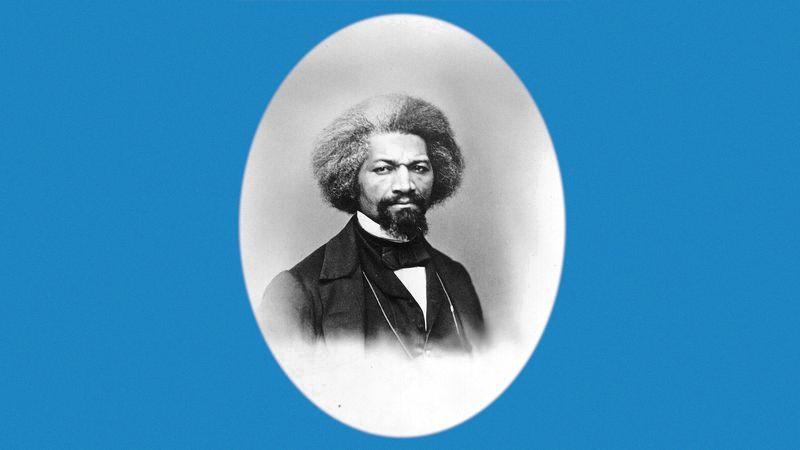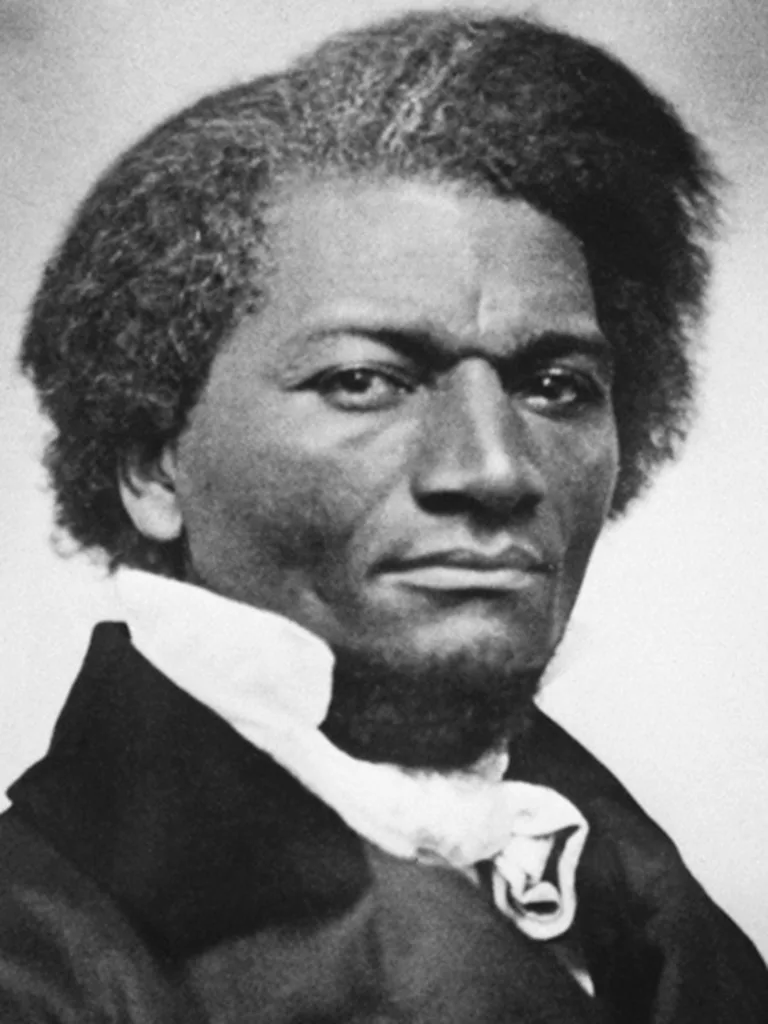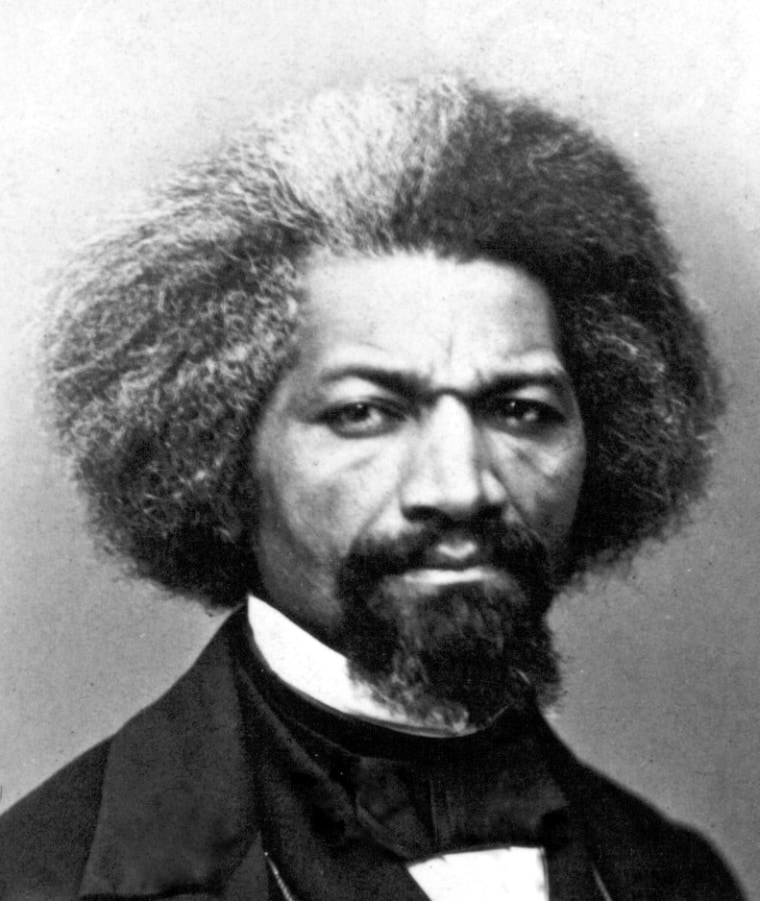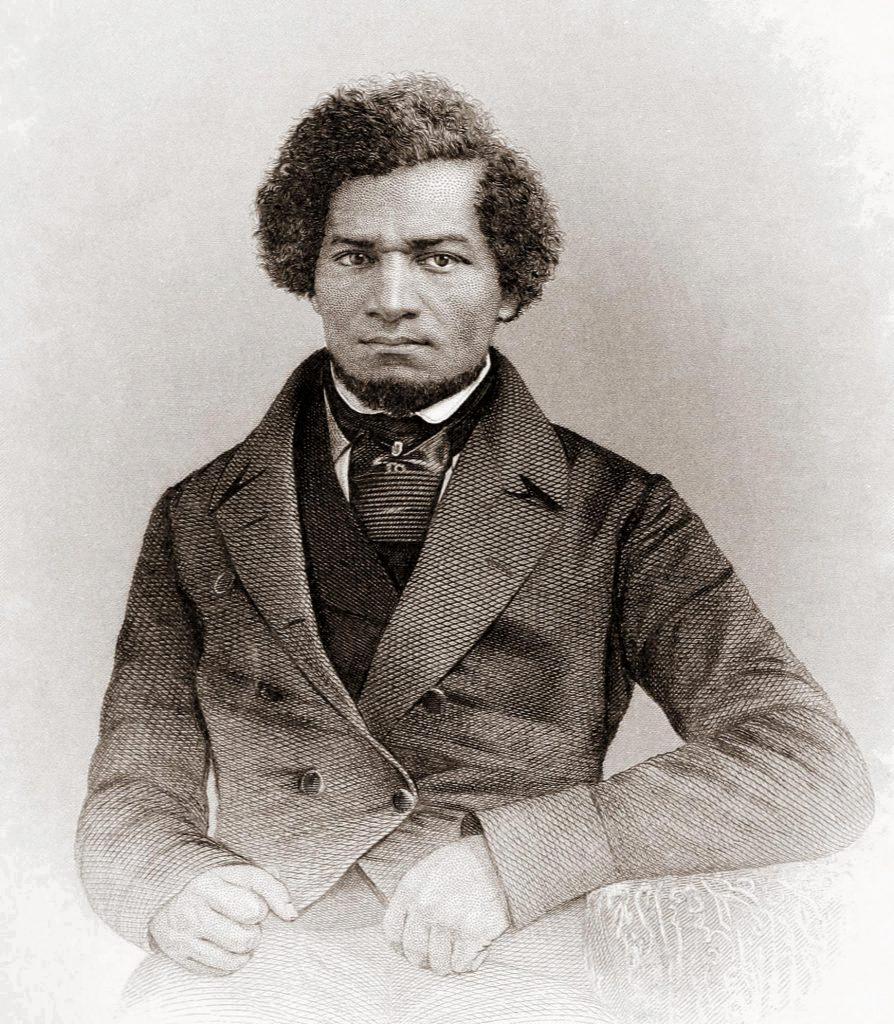Frederick Douglass was an African-American social reformer, abolitionist, orator, writer, and statesman who lived from 1818 to 1895. Born into slavery, Douglass was determined to escape his circumstances and educate himself. He is known for his powerful speeches and writings on the injustices of slavery, and his efforts to promote equal rights and opportunities for all people.
One of the most important aspects of Douglass’s story is how he learned to read and write. As a slave, he was not allowed to receive any formal education, and it was illegal for anyone to teach a slave to read or write. However, Douglass was determined to learn, and he found ways to do so despite the obstacles in his path.
The first person who taught Douglass how to read was Sophia Auld, the wife of one of his slaveholders. She began teaching him the alphabet when he was around 12 years old, and he quickly became fascinated with the power of words and language. However, her husband found out about the lessons and put a stop to them, warning Sophia that literacy would make Frederick “unmanageable” and “unfit to be a slave.”
Despite this setback, Douglass continued to teach himself to read and write. He would sneak books whenever he could, and he also asked white children in the neighborhood to help him learn. He would trade them bread or other small favors in exchange for reading lessons. He was also lucky enogh to have access to newspapers, which he studied closely to improve his vocabulary and writing skills.
Over time, Douglass became an accomplished reader and writer, and he often used his skills to help other slaves learn to read and write as well. He knew that education was the key to freedom, and he was determined to share that knowledge with others.
Frederick Douglass’s story is a testament to the power of education and determination. Despite the many obstacles he faced as a slave, he was able to teach himself to read and write, and he used those skills to become one of the most influential voices of his time. His example serves as a reminder that no matter how difficult our circumstances may be, we can always find a way to learn and grow.
Teaching Himself to Read and Write: Frederick Douglass’s Story
Frederick Douglass, a former slave, taught himself to read and write thrugh a combination of resourcefulness and determination. When he was first brought to Baltimore, he was sent to work with Hugh Auld, who had a reputation for being a kind master. However, despite this, Douglass was not allowed to attend school, and he was forbidden from learning to read and write.
Despite this, Douglass was determined to learn. He began by befriending the white children in his neighborhood, whom he would sometimes bribe with food in order to get them to teach him letters and words. Eventually, he began to read newspapers and books on his own, using a variety of creative methods to help him learn. For example, he would copy letters and words onto scraps of paper, and he would use a stick to practice writing in the dirt.
One of the key turning points in Douglass’s education came when he was around twelve years old, and he encountered The Columbian Orator, a collection of speeches and essays that had been widely used in American schools at the time. The book helped to shape Douglass’s views on freedom and equality, and it inspired him to continue his quest for knowledge.
Over time, Douglass’s efforts paid off. He became an accomplished reader and writer, and he began to use his skills to advocate for abolition and social justice. In later years, he would credit his ability to read and write with helping him to escape slavery and become one of the most prominent voices of the abolitionist movement.

Source: britannica.com
Learning to Read: Frederick Douglass’ Journey
Frederick Douglass, a former slave and prominent abolitionist, learned to read when he was around 12 years old. Despite a ban on teaching slaves to read and write, Douglass was taught the alphabet by his slaveholder’s wife, Sophia Auld. However, when her husband Hugh Auld discovered what was happening, he forbade her from continuing to teach Douglass. Nevertheless, Douglass continued to learn from white children and others in his neighborhood, defying the ban on his education. As a result of his determination and hard work, Douglass became an accomplished writer and orator, using his skills to fight for the abolition of slavery and the equality of all people.
Methods Used by Douglass to Learn to Read
Frederick Douglass, a formerly enslaved African American, took various methods to learn how to read. His journey to literacy started when Mrs. Auld, the wife of his slave owner, taught him the alphabet. She was later prohibited from teaching him by her husband, who believed that education would make slaves uncontrollable.
However, Douglass was determined to learn how to read and write. He obtained books from various sources, such as sailors and white boys in the street. He also traded food for reading lessons with poor white children.
In his autobiography, Douglass described how he used to cover his copybook with old pieces of newspaper to avoid detection while he was practicing writing. He also copied the letters he saw on shipping crates and other items and practiced writing them on the ground with a stick.
Douglass’s efforts to learn paid off, and he became a proficient reader and writer. He used his literacy skills to read abolitionist newspapers, which opened his eyes to the possibility of freedom. Eventually, Douglass was able to escape slavery and become a prominent abolitionist speaker and writer.
Douglass took various methods to learn how to read, including learning the alphabet from Mrs. Auld, obtaining books from diferent sources, and practicing writing in secret. His determination led to his eventual literacy and his ability to use his skills to fight against slavery.
Frederick Douglass’s Journey to Literacy
Frederick Douglass became literate at the age of 12, thanks to a slaveholder’s wife who taught him the basics of reading and writing. However, his learning experience was not without its challenges. The slaveholder soon discovered that his wife was teaching Douglass and forbade her from doing so because he believed that literacy made a person unfit to be a slave.
Despite this setback, Douglass was determined to learn and continued to educate himself in secret. He would often trade bread with poor white children in his neighborhood in exchange for reading lessons. He also studied the letters on shipping crates and copied them in order to practice his writing.
Over time, Douglass became more proficient in reading and writing, whih allowed him to gain a deeper understanding of the world around him. He began to question the institution of slavery and resolved to escape to freedom. His literacy skills played a crucial role in his later activism and advocacy for abolitionism.
Learning to Read Through Self-Education: Douglass’s Story
One way that Douglass learned to read was through the teachings of his mistress, Miss Auld, during his time in Baltimore. Miss Auld was instructing her own young son on how to read and write, and she took it upon herself to also teach Douglass at the same time. This provided Douglass with an opportunity to develop his literacy skills and expand his knowledge base. With the help of Miss Auld’s teachings, Douglass was able to gain a fundamental understanding of reading and writing, which would later prove to be invaluable in his pursuit of freedom and education.

Teaching Slaves to Read
The ability of slaves to read was not a common thig during slavery in the United States. In fact, it was illegal in many states for slaves to learn to read and write. However, some slaves were able to learn through Christian instruction, as some slave owners allowed their slaves to attend church services. In these services, they would be taught how to read the Bible.
Other slaves who were able to learn to read did so in secret, often with the help of sympathetic white people who were against slavery. These white people would teach slaves to read and write in secret, risking punishment if they were caught.
Some slave owners did encourage literacy for their slaves, but only for practical reasons. They needed someone to run errands for them, and it was easier if the slaves could read and write. However, even in these cases, the owners would only encourage reading and not writing.
Slaves learned to read through Christian instruction, secret tutoring from sympathetic white people, and sometimes through encouragement from their owners for practical purposes. However, it was still a rare and often illegal occurrence during slavery in the United States.
Learning to Read: Frederick Douglass’s Journey
Frederick Douglass learns to read in Chapter VII of his autobiography. During this chapter, he describes his seven years living in Hugh Auld’s household, during which time he is able to learn how to read and write. Mrs. Auld initially teaches him, but she becomes hardened and stops tutoring him. Despite this setback, Douglass is determined to continue learning and finds other ways to acquire knowledge.
It is important to note that Douglass’ ability to read and write is a significant turning point in his life. It alows him to gain knowledge and develop critical thinking skills, which ultimately lead to his desire for freedom and his ability to advocate for the abolition of slavery.
Chapter VII of Douglass’ autobiography is when he learns to read, which is a crucial moment in his life and in the fight against slavery.
Frederick Douglass’s Love of Reading
Frederick Douglass was an avid reader who enjoyed reading anything he could get his hands on. He was known to read newspapers, political pamphlets, novels, textbooks, and other materials that were aailable to him. His love for reading was not just a pastime, but it was also a means of educating himself as he pursued his own freedom and human rights.
Douglass credits one particular collection, The Columbian Orator, for helping him clarify and define his views on freedom and human rights. This collection of speeches and essays helped him to develop his own ideas about the importance of individual liberties, the abolition of slavery, and the role of government in society. The Columbian Orator was a powerful tool that helped Douglass to articulate his beliefs and become an influential speaker and writer.
Frederick Douglass loved to read and was an avid learner. His passion for reading helped him to become one of the most important figures in the abolitionist movement, and his writings continue to inspire and educate people to this day.
Frederick’s Belief That ‘Once You Learn To Read You Will Be Forever Free’
Frederick Douglass, the famous abolitionist, made the statement “Once you learn to read, you will be forever free” in his 1845 autobiography titled “Narrative of the Life of Frederick Douglass, an American Slave.” This quote has sine become one of his most well-known and inspiring statements. In the book, Douglass describes how learning to read and write was a crucial turning point in his life, as it allowed him to gain knowledge and understanding of the world around him, and ultimately helped him escape from slavery. His words continue to resonate today, as they serve as a reminder of the power of education and the importance of literacy in achieving personal freedom and empowerment.

Improving Reading Skills: Douglass’ Journey
Frederick Douglass, the famed abolitionist and orator, initially learned the alphabet from his mistress. He further honed his reading skills by teaching himself how to spell his own name. However, Douglass’s literacy journey did not end there. He yearned to expand his vocabulary and comprehension, but as a slave, he did not have access to formal education. Therefore, he resorted to a clever and resourceful approach.
Douglass began tricking young white boys in his neighborhood into teaching him new words. He would approach them and ask them to read a portion of their book or newspaper out loud. Then he would ask them about the meaning of the words he did not understand. Interestingly, Douglass would sometimes act as though he knew the meaning of the words, so as not to give away his illiteracy. Once the boys had explained the meaning of the words, Douglass would commit them to memory and use them in his own speech and writing.
Through this method, Douglass was able to expand his vocabulary and comprehension gradually. He also learned to read more complex texts, such as the speeches of politicians and the writings of philosophers. Eventually, he bcame a skilled and eloquent writer and speaker, using his literacy to advocate for the abolition of slavery and the rights of African Americans.
Douglass improved his reading skills through a combination of his own initiative and resourcefulness, as well as the help of others. He taught himself to spell his name, but he also sought out the assistance of young white boys in his neighborhood to teach him new words. Through persistence and hard work, Douglass became a highly literate and influential figure in American history.
Douglass’s Motivation to Learn to Read and Write
Frederick Douglass, an African American slave, was highly motivated to learn how to read and write because he realized that these skills were his only way to achieve freedom. Being enslaved for life was a painful experience for Douglass, and he believed that literacy was the key to his release. By learning how to read and write, he could better understand the world around him, and he could communicate with others more effectively. Furthermore, he believed that reading and writing would help him become more articulate and persuasive, whch would enable him to better advocate for his own freedom and the freedom of others.
Douglass was extremely dedicated to his education, despite facing numerous obstacles. He took every opportunity to learn, even if it meant risking punishment from his owners. For example, he would secretly teach himself how to read and write by using old newspapers and books that he could find. He also received help from some of the white children in his neighborhood, who would teach him words and phrases that he didn’t understand.
Douglass’s motivation to learn to read and write was so strong that he was willing to risk his life for the opportunity to do so. He understood that education was the key to his liberation, and he was determined to achieve it. Ultimately, his dedication and hard work paid off, and he became one of the most influential writers and speakers of his time.
Strategy Used by Frederick Douglass
Frederick Douglass used the rhetorical strategy of apophasis in his famous speech. This strategy involves mentioning a topic by claiming not to mention it, thus drawing attention to the topic. In this case, Douglass reminded his audience of all the arguments that refute slaveholders’ self-justifications by claiming that they are so well understood as to need no further recitation. By using apophasis, Douglass was able to highlight the hypocrisy of slaveholders and their attempts to justify the inhumane treatment of slaves. This rhetorical strategy is commonly used in political speeches and debates to make a point wthout directly attacking the opposing side. Douglass’s use of apophasis helped him to effectively convey his message of the evils of slavery to his audience.
The Impact of Reading on Frederick Douglass
Frederick Douglass, the renowned abolitionist, orator, and writer, had a profound relationship with reading that significantly impacted his life. Douglass was born into slavery, and like other enslaved individuals, he was prohibited from learning how to read and write. However, despite the challenges he faced, Douglass managed to learn how to read and write through his determination and resilience.
Reading opened up a whole new world for Douglass, which he had never known before. It allowed him to access knowledge, ideas, and experiences that were previously beyond his reach. Reading gave him a sense of freedom, and he became acutely aware of the oppression and injustice of slavery. Through reading, Douglass began to understand his position in society and the need to fight for his rights as a human being.
Reading also helped Douglass to gain a deeper understanding of the world around him. He was able to see the contradictions in the slave-holding society and recognize the hypocrisy of those who claimed to be Christians while perpetuating the institution of slavery. Douglass’s literacy gave him the ability to articulate his thoughts and ideas eloquently, and he used his writing to expose the horrors of slavery and advocate for its abolition.
However, the effect of reading on Douglass was not always positive. At times, he felt that the knowledge he gained through reading was a burden rather than a blessing. He was acutely aware of his lack of power and agency in a society that denied him his fundamental rights, and reading made him even more conscious of his oppression. Nevertheless, Douglass recognized that reading was a critical tool for achieving his freedom, and he continued to read and write thrughout his life.
Reading had a profound impact on Frederick Douglass’s life. It allowed him to access knowledge and ideas that were previously beyond his reach, gain a deeper understanding of the world around him, and articulate his thoughts and ideas eloquently. Reading was a critical tool in his fight for freedom and equality, and it remains a powerful force for social change today.

Source: scriptoriumdaily.com
Gaining Literacy Through Reading: Frederick’s Hope
Frederick Douglass was a notable American abolitionist, writer, and orator who was born into slavery in the 19th century. As a slave, Frederick was denied the right to read and write, which he believed was essential to his quest for freedom. His desire to read and write was not only an intellectual curiosity but also a means to escape from the brutal and dehumanizing conditions of slavery.
Frederick hoped that by learning how to read and write, he would gain the knowledge and skills ncessary to understand the world around him and to communicate his thoughts and ideas effectively. He believed that education would empower him to challenge the oppressive system of slavery and to advocate for his rights and the rights of other enslaved people.
Learning how to read was a significant challenge for Frederick because it was illegal for slaves to read or write. However, he was determined to overcome this obstacle and found a way to learn in secret. He would often sneak away to borrow books and teach himself to read by tracing the letters in the sand.
Through his education, Frederick gained a deeper understanding of the world and the injustice of slavery. He realized that knowledge and education were powerful tools for liberation and that his ability to read and write could be used to fight for his freedom.
Frederick Douglass hoped to gain knowledge, empowerment, and the ability to fight for his freedom by learning how to read. His determination and perseverance in the face of adversity are a testament to the power of education and the human spirit.
Conclusion
Frederick Douglass was a remarkable figure in American history, who overcame incredible odds to become a powerful voice for the abolitionist movement. Despite being born into slavery, Douglass was able to teach himself to read and write, defying the laws and societal norms of his time.
Through his powerful speeches and writings, Douglass became a leading spokesman for the abolitionist movement, advocating for the end of slavery and equal rights for all people. His commitment to justice and equality inspired countless individuals to join the fight against slavery and discrimination.
Today, Douglass’s legacy lives on as a symbol of the power of education, the importance of standing up for what is right, and the ability of one person to effect change in the world. As we continue to work towars a more just and equitable society, we can draw inspiration from Frederick Douglass’s life and legacy, and strive to carry on his mission of fighting for freedom and equality for all.
